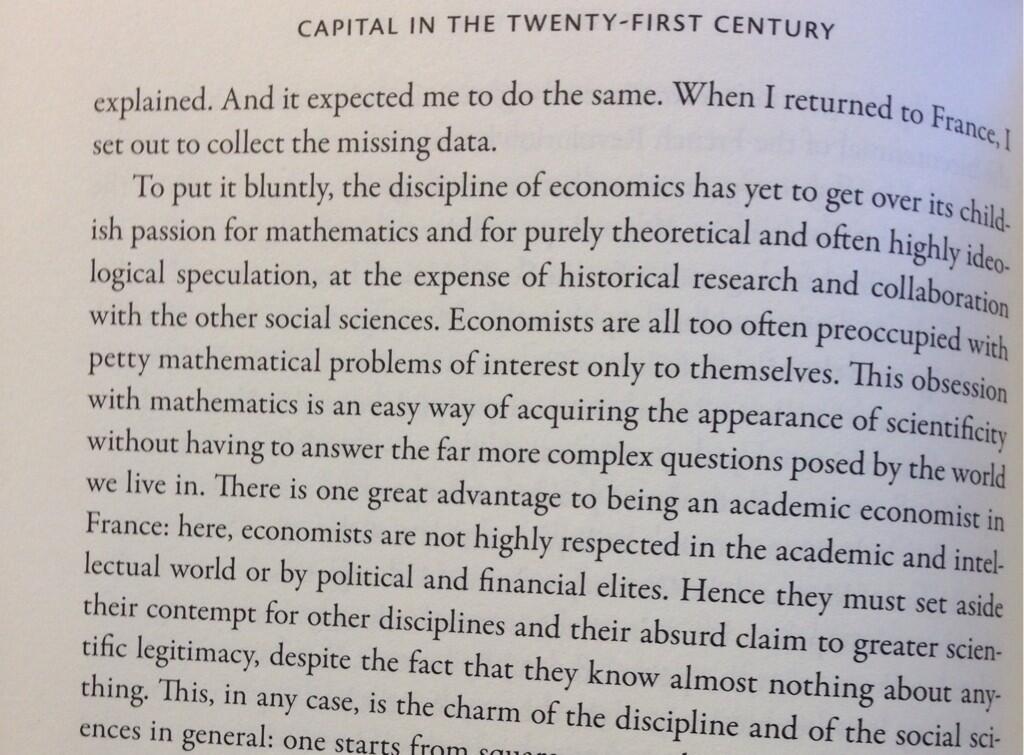So I can’t start reviewing it. I am very excited, as I’ve told readers before my first economics book (which I didn’t read particularly well) was Das Kapital, so my formative experience with economics was one about factors shares. To get myself ready I have been reading around the issue – on top of the usual reading I’ve been doing on income distribution work I’ve been trying to catch up a little bit on the factor share stuff. So I’m excited about my book finally turning up. One of the issues with living in New Zealand I guess!
However, I’ve seen some people discussing it on twitter, and I was a bit upset about this part of the book:

As I said:
I hope this is not representative of what happens in the book. It betrays one of two things:
- a fundamental misunderstanding of what economic modelling is and why it is used as a tool
- a straw man attack (a particularly arrogant one) used to take away attention from any inadequacies in his own argument
Given Piketty is several orders of magnitude smarter than me, it has to be the second – which is a very disappointing rhetorical play to roll out when discussing economic issues 🙁
He is legitimizing a view of the discipline that is frankly false and not helpful for us trying to answer questions to create knowledge – economists have the role of discussing trade-offs to help us consider what is going on in the world around us, waving our disciplinary wang in each others faces to try to win an argument without proper discourse doesn’t help this!

